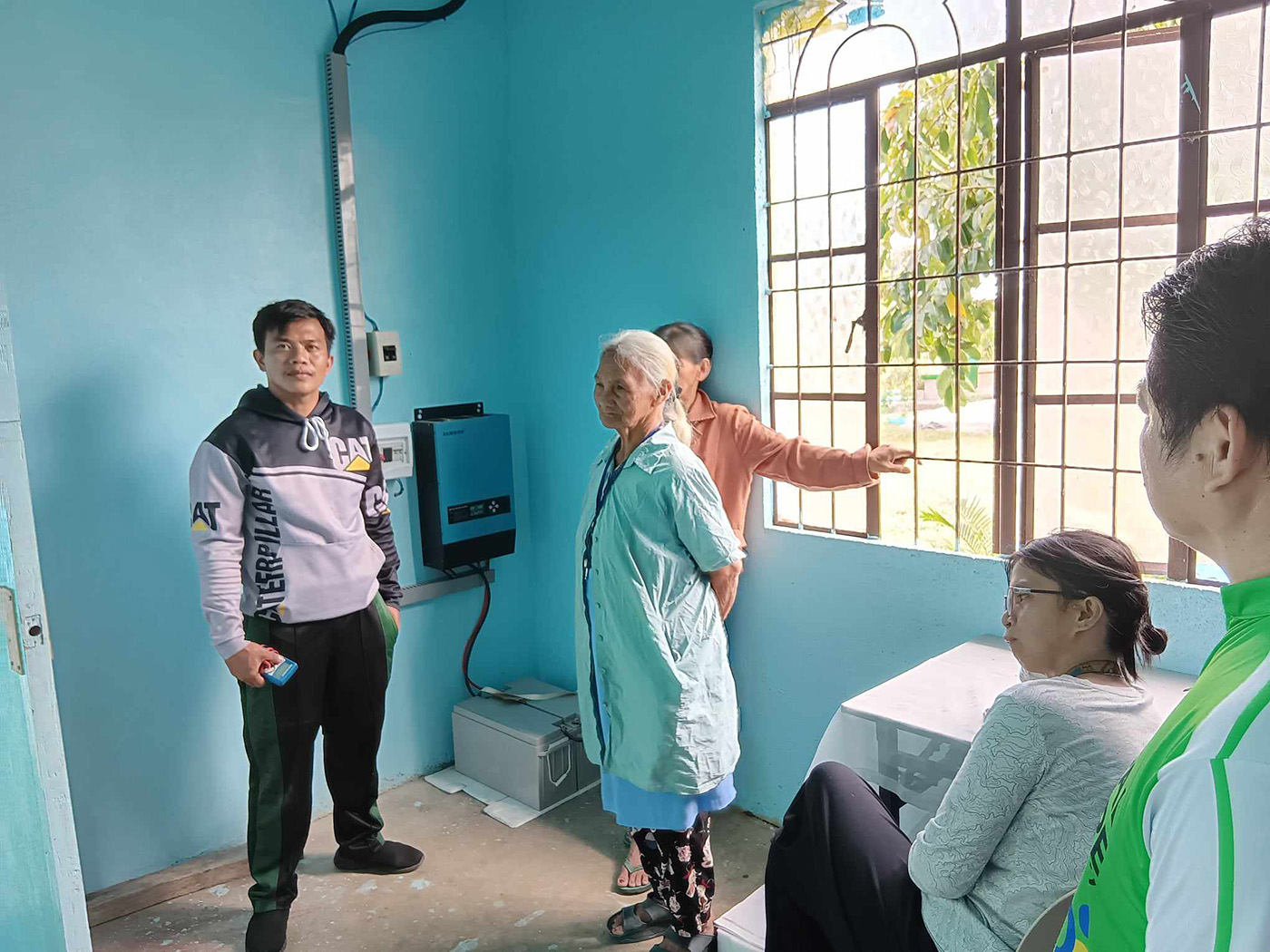Episcopal Church in the Philippines is Solar Powered
St. Vincent’s Episcopal Church leads the way in Solar Power!
The Episcopal Church in the Philippines expresses the 5th Mark of Mission as “We strive to safeguard the integrity of creation.”
The congregation of St. Vincent’s Episcopal Church in Magasuso, Bulo in Tabuk City, is doing its part to fulfill this 5th Mark of Mission, with concrete results.
In October 2023, the congregation, through St. Vincent’s Credit Cooperative, established an Off-Grid Hybrid Type Solar System that now powers the church and runs a 1.5HP submersible pump for a deep-well water system that supplies water to ten households and the church.
Before installing the solar system, the electricity bill of the church for 102 KWH, covering both lighting and a water pump supplied by the Kalinga Electric Cooperative, was 1,020 pesos (about $28.00). After solarisation, the consumption of electricity from the grid dropped to 65 KWH and cost about half the previous amount.
St. Vincent’s obtained a grant of 135,000 pesos (about $3,700) for their solar project as part of the Decarbonization Program of the Episcopal Church in the Philippines through the E-CARE Foundation under its Receivers to Givers policy. St Vincent’s will use the savings on their monthly electricity bills and pay a water tariff as a “grant back” to E-CARE so that the funds can be passed on to other communities interested in doing the same project.
This is part of a broader “solarisation” project supported by AID with funding from the Australian NGO Cooperation Program.
Electric power in the Philippines, as with many countries, relies heavily on fossil fuels, resulting in the production of greenhouse gas (GHG) emissions that damage the environment. In the Philippines, coal is the most frequently used fuel used in producing electricity for the grid. By establishing the solar system, St. Vincent’s Episcopal Church has reduced its carbon footprint by 37% and looks forward to further reductions, to meet the ECP’s target of net zero GHG emissions.
Story adapted from a story published by the Episcopal Church in the Philippines. Story and photograph used with permission.
